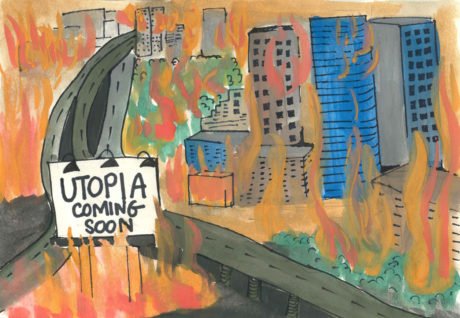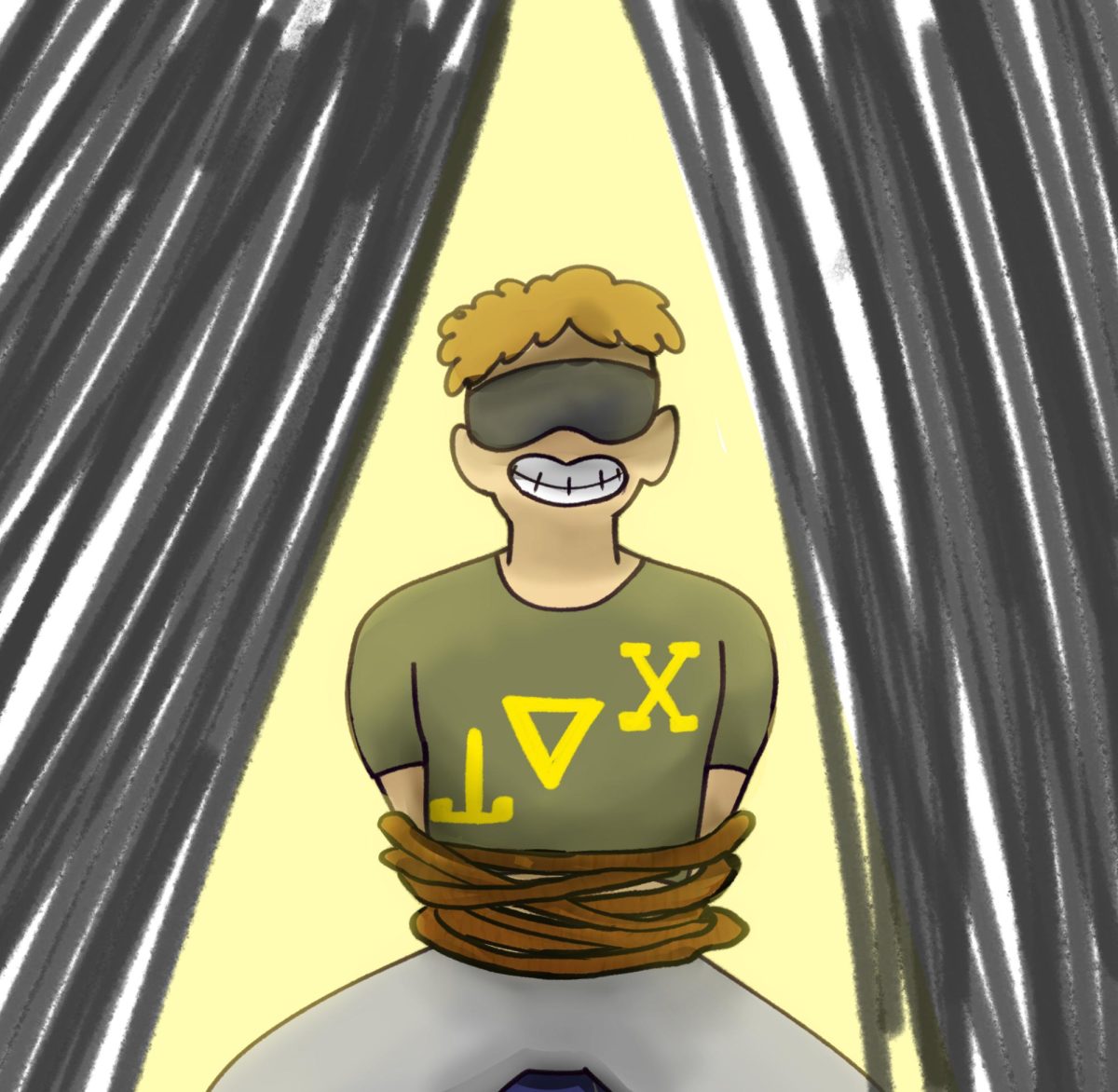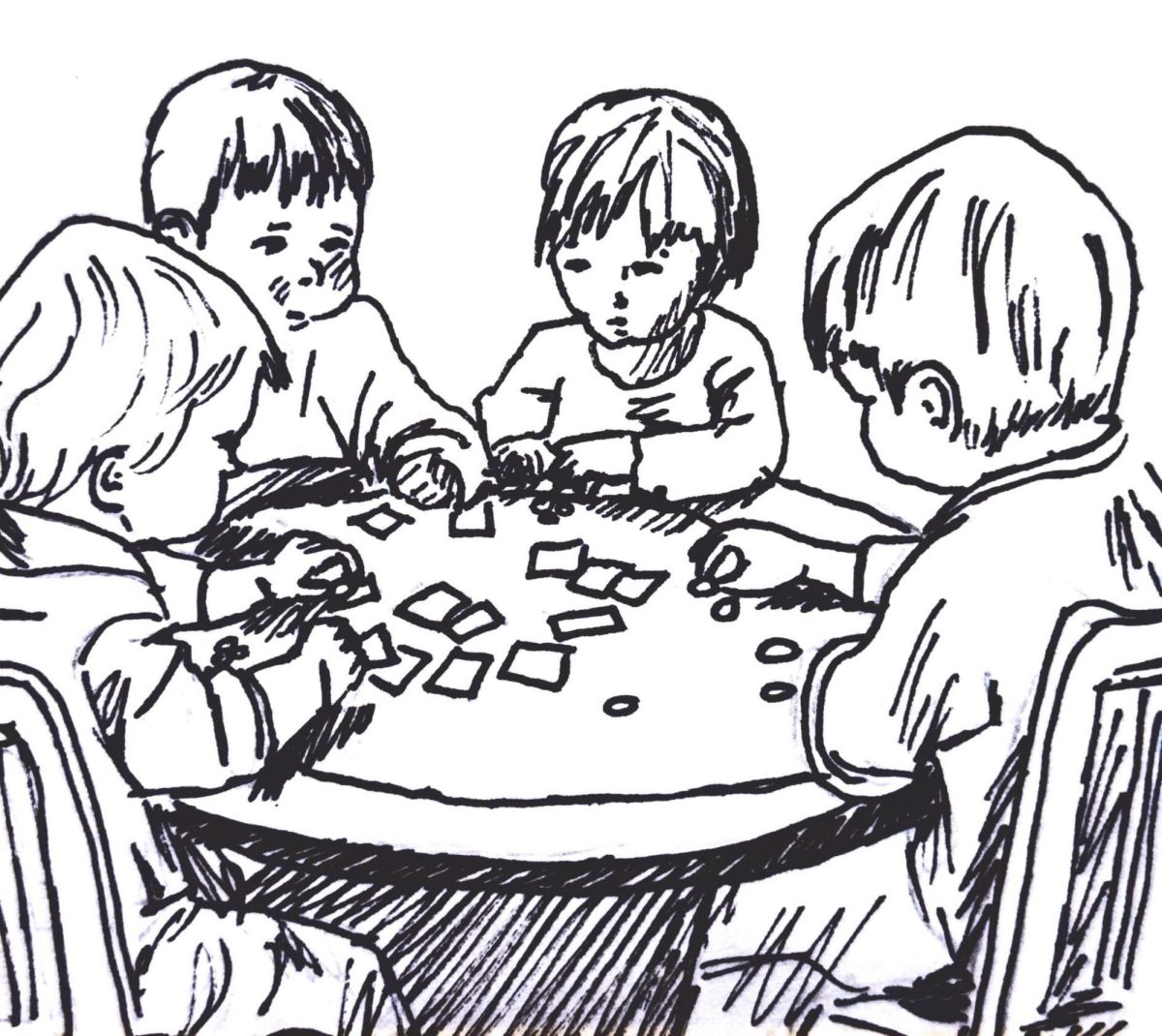Let’s admit that just now our world could use a little sprucing up. I often think of the joke that dramatist Samuel Beckett has one of his characters tell about the world.
A man hires a tailor to make a pair of pants. The tailor keeps botching parts of them, endeavors to make them perfect, and keeps putting off delivery. The client finally becomes exasperated, loses his patience and complains, “In six days, do you hear me, six days, God made the world. Yes Sir, no less Sir, the WORLD! And you are not bloody well capable of making me a pair of trousers in three months!”
The tailor replies, “But my dear Sir, my dear Sir, look “” [disdainful gesture, disgustedly] “” at the world “” [pause] “” and look “” [loving gesture, proudly] “” at my TROUSERS!”

Yes, things are a bit shabby, to say the least, especially because we live at a moment of tremendous and historically unprecedented power to transform the world, and yet we do little with that power to make the world more equal. (I once heard capitalism defined as that state in which, finally having the power to abolish hunger forever, we choose not to do so.)
In fact, these days seem less characterized by consciously resisting progressive change than by pointedly embracing regressive impulses, the desire, rooted in what literary critic Fredric Jameson has called “collective narcissism,” to move backwards into the atavistic swamps of xenophobia and racism. In fact, there seems to be tremendous social energy channeled into these forms of barbarism just now, energy that one cannot help but think could be put to much better uses.
Much has and should be said about the repulsive and destructive impulses of these groups, but not enough has been recognized about the incredible waste of social energy that goes along with them. Poet William Butler Yeats, about a different period from our own, wrote, “The best lack all conviction, while the worst / Are full of passionate intensity.”Wouldn’t it be nice to bottle all that passionate intensity and use it for something better?
But let’s remember this: Racists and xenophobes make the world worse, but most of them probably do not conceive of their projects and intentions in this way. They rather believe that they are working to create a better world. Jameson, following the philosopher Ernst Bloch, once controversially argued that ideology is not the opposite of utopia. That is, he argues that utopia and regressive ideologies often exist in the very same place, that there is an unconscious utopian dimension and even perhaps distorted traces of collective utopianism in even the most repugnant regressive practices.
In the propaganda film, “Triumph of the Will,” for instance, Leni Riefenstahl depicts the morning reveille at a Nazi rally in Nuremberg: There are hundreds of tents in tidy rows and all the men are bare-chested and smiling; they comb one another’s hair, shave each other’s faces, scrub each other’s backs, and playfully spray each other with water. It would all be a very pretty picture if this collective weren’t united by its monstrous desire to kill Jews.
Bloch thought that it was worth recognizing the utopian dimension in even the most regressive places, not at all to excuse regressive impulses, but, in Jameson’s words, on the “wager that their energies can be appropriated by the process of unmasking, and released by consciousness.” The idea, not without its dangers, is that utopian social energies might be redirected if only the destructive ideology could be exposed as hollow and fruitless and the unconscious impulse that propelled the destructive cause could be brought to consciousness as the truly collective utopian desire.
Unmasking and making conscious: These activities seem to me something like a central dimension of education, one of the very things that unites academic communities such as our own. We should begin to regard education, perhaps, not just as our collective attempt to expose through rigorous reason the deceptions and inadequacies of regressive discourses, but also to make conscious and to actualize the tremendous potentiality of social energy, the unconscious impulse for the better world, that is currently wasted on making it worse.
Bloch has a good anecdote of unmasking and making conscious of the kind that I have associated with education: A white man arrives late at night at a hotel. He finds that all the rooms are taken except for the second bed in a room where a black man is already asleep. The man grudgingly takes the bed “” he has an early train to catch. But he instructs the bellhop to be sure to wake the right man up in the morning.
The man and some friends then drink well into the night. He gets so drunk that his friends are able to paint him in blackface as a joke without his even knowing it. The next morning, the bellhop wakes him up and he rushes half-asleep to the train. Once aboard, he goes to the restroom to wash his face. Bloch delivers the punch line this way: “Seeing himself in the mirror, he bellowed, “˜Now, that idiot woke the n””r after all!’ “
For me, story exemplifies a powerful moment of education and potential change. Bloch says that though half-asleep, the man on the train was never more awake than at that moment, the moment in which “his habitual whiteness fell from him like taking off a suit.” The story, remember, takes place on a train, a space of power, movement and transition. And after this moment of nakedness, the man will have the opportunity to put on an entirely new suit.
Personally, I’d recommend Beckett’s tailor, who aims to make something better than the world, even if it takes a bit longer than it took to make the world.






